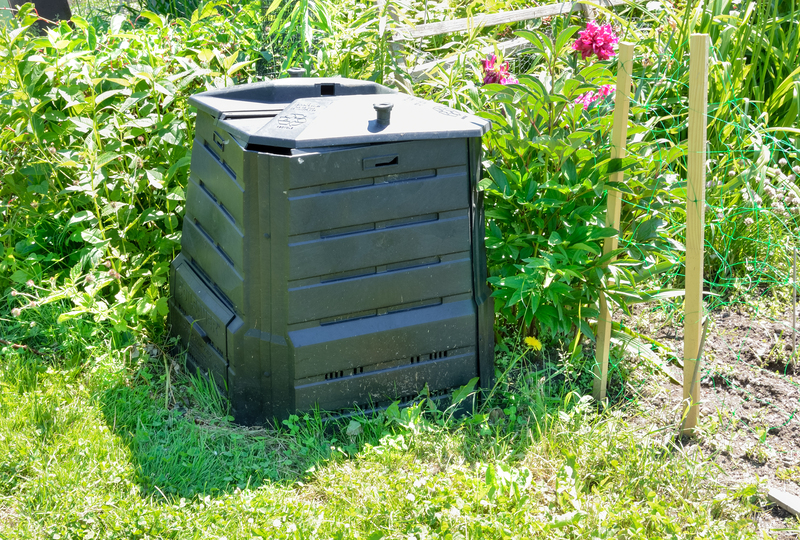
What to Do When Your Garbage Isn't Picked Up
Experiencing a missed garbage collection can be frustrating and can lead to various issues, including bad odors, pest infestations, and a general decline in neighborhood aesthetics. If you've found yourself asking, "What should I do when my garbage isn't picked up?", this comprehensive guide aims to answer all your questions and provide you with effective actions you can take.
Understanding Waste Management Systems
Before diving into solutions, it's crucial to understand how garbage collection systems operate. Most cities have established waste management services to ensure cleanliness and public health. These services can be provided by:
- Public agencies: Often run by the municipality, these services are funded by taxes.
- Private companies: Some areas contract waste collection to private firms, providing more specialized services.
- Community-led initiatives: In smaller communities, residents might take a collaborative approach to manage waste.
Garbage collection schedules may vary based on location and type of waste. Factors like weather conditions, holidays, or operational issues can all lead to missed pickups.
Steps to Take When Your Garbage Isn't Collected
If you find yourself in a situation where your garbage hasn't been picked up, follow these steps:
1. Wait for a Reasonable Time
Sometimes, garbage collection can be delayed due to unforeseen circumstances like traffic, weather conditions, or mechanical issues with the garbage truck. Wait at least 24 hours after the scheduled pickup before taking further action.
2. Verify Your Collection Schedule
Double-check the garbage pickup schedule for your area. Look for:
- Official city or county websites.
- Community bulletins or newsletters.
- Local social media groups for updates from neighbors.
Confirm if there have been any posted changes to your collection day or times.
3. Check for Service Alerts
Local government websites often have sections dedicated to service alerts. Here, you can find information about:
- Schedule changes due to holidays.
- Emergency weather-related alerts.
- Service interruptions.
For instance, some municipalities will delay pickup due to inclement weather; this information can save you a call.
4. Contact Your Waste Management Provider
If you've determined that your garbage should have been collected, it's time to reach out:
- Phone Call: Call the waste management company directly to report the missed service. Be polite and concise.
- Email or Online Contact Form: If phone lines are busy, look for an online option for reporting issues.
Make sure to have your address and other pertinent information ready for reference.
5. Document the Missed Pickup
Keeping a record of missed pickups can be beneficial if the problem persists. Here's how to document:
- Date of the missed pickup.
- Photos of your uncollected garbage.
- Notes on any communication with your waste management provider.
This information can help your provider identify persistent issues in your area.
6. Talk to Your Neighbors
It's possible that your neighbors are experiencing the same issue. Discussing with them can help identify patterns, so check:
- If they had their garbage picked up.
- Any insights they might have on local issues.
Building a community approach can sometimes lead to quicker resolution when multiple residents report the problem.
Alternative Solutions If Garbage Isn't Picked Up
If you find that your garbage is frequently uncollected, it's worth considering alternative solutions:
1. Request Additional Services
If your provider consistently fails to pick up your garbage, consider requesting additional services. This could involve:
- More frequent collection days.
- Special pickups for bulk items.
2. Explore Local Drop-off Centers
Many municipalities provide local drop-off centers where residents can dispose of waste. This can be particularly useful if:
- You have large items that won't fit in your bins.
- You're concerned about accumulating waste too long.
Check your city's website for a list of these facilities.
3. Join Neighborhood Clean-Up Programs
Many communities have organized clean-up days. Participating in these initiatives not only helps with immediate garbage issues but also fosters community spirit. Look out for:
- City-sponsored clean-up days.
- Local non-profits organizing clean-up events.
Such programs often provide additional resources for managing waste effectively.
Preventing Future Garbage Collection Issues
To minimize the risk of issues in the future, consider the following practices:
1. Ensure Compliance with Local Guidelines
Be aware of and comply with local waste management guidelines, as failure to do so could lead to:
- Missed pickups if garbage is placed incorrectly.
- Fines or fees for non-compliance.
Common regulations may include:
- Specific days for recycling vs. general waste.
- Limiting the types and quantities of waste per pickup.
2. Properly Prepare Your Trash for Collection
Take steps to prepare your garbage correctly, including:
- Sealing bags to prevent spillage.
- Using approved containers.
This ensures the garbage is ready for collection and reduces the chances of missed pickups.
3. Stay Informed About Local Changes
Regularly monitor local government announcements or subscribe to updates from your waste management provider. Social media, newsletters, and community meetings can be excellent resources for staying informed.
When to Consider Alternative Waste Providers
If your waste management provider consistently fails to collect garbage, it may be worth exploring alternatives. Here are a few considerations:
- If you frequently experience missed pickups.
- If customer service is unresponsive.
- If your community is dissatisfied overall with the service provided.
Start by researching other private waste management options in your area or inquire about any municipal options available.

Conclusion
Having your garbage not picked up can be a major inconvenience, but understanding the system, knowing how to react, and taking proactive measures can help you resolve the issue effectively. Remember to keep communication open with your waste management provider and consider the community approach when needed. By staying informed and prepared, you can contribute to a cleaner, more well-managed neighborhood.
In situations where problems persist, don't hesitate to explore alternative waste management options. The key to resolving garbage issues is to remain diligent and proactive about your waste management needs.